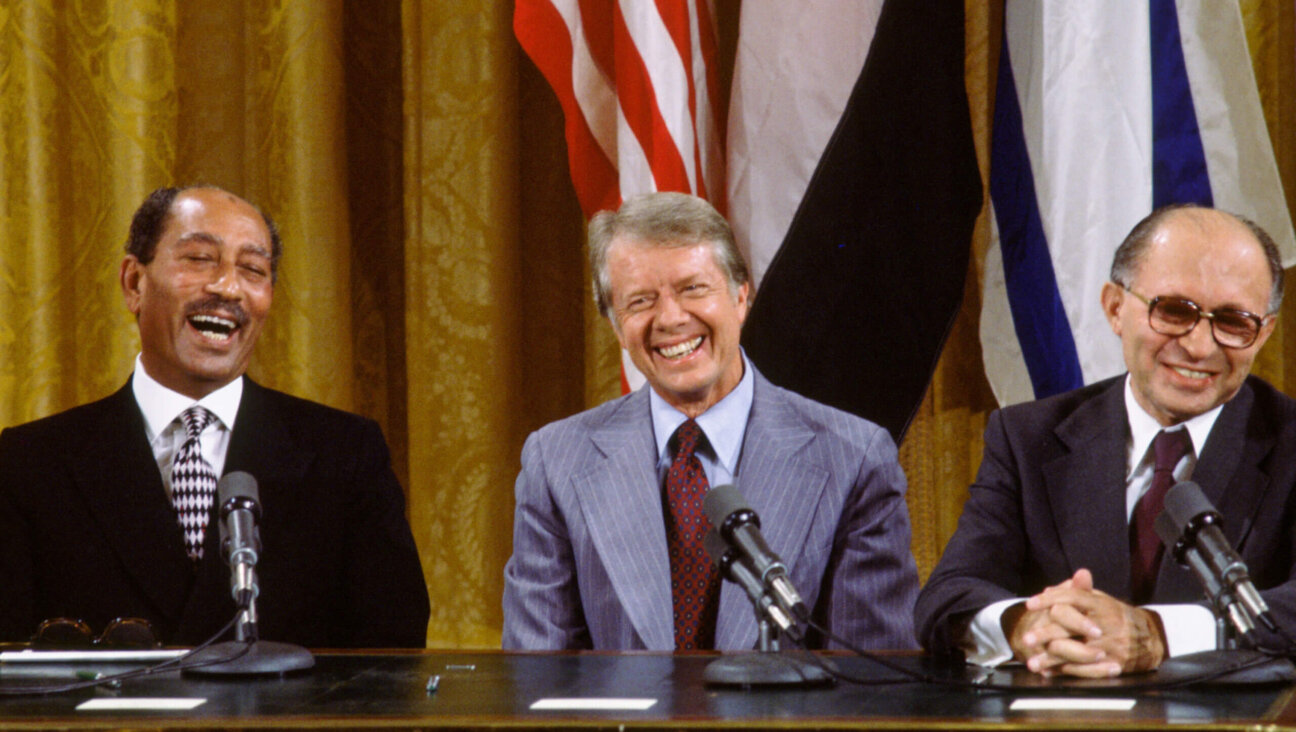Buy the Settlers Out
The Palestinians insist that any final settlement to their conflict with Israel must include the establishment of a state in all of the West Bank and Gaza. The current government of Israel, for its part, has shown its reluctance to evacuate any of the estimated 140 settlements. How, then, to reach a settlement on the settlements?
There is a way to break through this seeming impasse which is as simple as it is far-reaching. It wouldn’t require American troops, and it would cost less than the aid the United States provides Israel each year. Simply put, the United States should spearhead an international effort to buy these settlers out — whether or not the Israeli government is willing to participate in this endeavor.
Of the 200,000 Israeli settlers who have established residence in the West Bank and Gaza, polling data indicates that the vast majority would relocate either to the large settlement blocs around Tel Aviv and Jerusalem — which the Palestinians have indicated a willingness to accept — or to homes within the pre-1967 borders. A study conducted by Hopp Research for the Israeli organization Peace Now indicates that as many as 60% of the settlers would not only obey a lawful order to evacuate, but would also be “prepared to accept a withdrawal from the settlements in exchange for suitable financial compensation.”
The Hopp poll shows that 80% of the settlers currently living in the West Bank relocated in order to improve their quality of life. For the last 20 years, offering Israelis persuasive economic incentives to move to the West Bank and Gaza has been a central policy of successive Likud-led governments. These include tax breaks worth approximately $4,000 per settler, subsidized down payment and mortgage interest rates, and per capita spending per settler that is more than double that for Israelis living within Israel’s pre-1967 borders.
The Hopp study makes it clear that most of the settlers currently living in the West Bank are not zealots; they do not agree with the hardliners who believe that Israel must keep the West Bank and Gaza because either the security of the state of Israel requires it or the coming of the Jewish messiah demands it. Unlike the minority of zealots, most settlers came to the territories in order to escape crowded low-income neighborhoods — to take advantage of an quality-of-life offer they could not resist.
But they now find themselves and their children very much in harms way. The militarization of the Palestinian resistance to the Israeli occupation has exposed them to the attacks of suicide bombers, snipers and deadly infiltrators into their communities and homes. Many want to leave, with or without an Israeli government decision requiring them to evacuate the settlements.
There is evidence that those who can afford it are already voting against the occupation with their feet. According to records of Israel’s Central Election Committee, the number of eligible voters in the West Bank is in decline. And during the last election campaign, residents of three West Bank communities made it clear to Labor candidate Amram Mitzna that they wished to leave but could not afford to do so.
An estimated $2 billion to $3 billion could remove one of the primary obstacles to peace between Israelis and Palestinians. But only the American government can spearhead this effort to create “facts on the ground” — which would alter the political landscape of the Middle East more decisively than any diplomatic or even military intervention.
Beginning May 7, Israel Independence Day, Brit Tzedek v’Shalom, the Jewish Alliance for Justice and Peace, will begin a year-long petition campaign urging the American government to undertake the initiative to buy the settlers out. By backing this effort — and urging their representatives in government to support the initiative — American Jews can throw their political clout behind a practical step forward on the road to peace.
Removing the settlements will not solve the conflict in the Middle East, nor will it completely stem Palestinian violence. But it can succeed in bringing morality back to Israel’s pursuit of security.
Marcia Freedman is a former Knesset member, author of “Exile in the Promised Land” and president of Brit Tzedek v’Shalom, the Jewish Alliance for Justice and Peace.
A message from our Publisher & CEO Rachel Fishman Feddersen

I hope you appreciated this article. Before you go, I’d like to ask you to please support the Forward’s award-winning, nonprofit journalism during this critical time.
We’ve set a goal to raise $325,000 by December 31. That’s an ambitious goal, but one that will give us the resources we need to invest in the high quality news, opinion, analysis and cultural coverage that isn’t available anywhere else.
If you feel inspired to make an impact, now is the time to give something back. Join us as a member at your most generous level.
— Rachel Fishman Feddersen, Publisher and CEO























